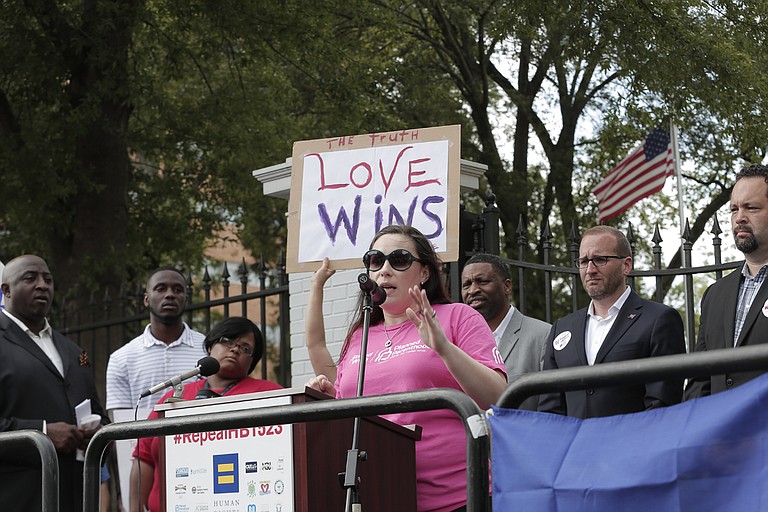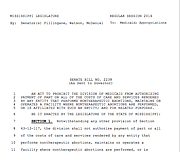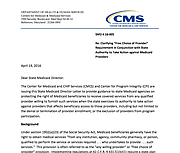Felicia Brown-Williams, director of public policy at Planned Parenthood Southeast, spoke out against Senate Bill 2238, urging the governor to veto the bill at a rally on May 1; Gov. Bryant signed the bill on May 10. Photo by Imani Khayyam.
Thursday, May 12, 2016
Gov. Phil Bryant signed Senate Bill 2238 on Tuesday, a law that blocks the state's Medicaid division from paying for "costs of care and services" at providers who also offer abortion services—anywhere in the state. The bill, aimed at Planned Parenthood in Mississippi, may also catch Mississippi's only abortion clinic, the Jackson Women's Health Organization, in its net.
With the law in effect, Mississippi's Planned Parenthood clinic, which doesn't offer abortion services, will no longer receive Medicaid reimbursements for the family-planning services it offers such as birth control, cancer screenings and screenings for sexually transmitted infections.
Lt. Gov. Tate Reeves announced on Twitter that the governor signed the bill and thanked him for "banning any state funds from being spent by Planned Parenthood."
The bill prohibits the division of Medicaid from "authorizing payment of part or all of the costs of care and services rendered by an entity that performs nontherapeutic abortions, maintains or operates a facility where nontherapeutic abortions are performed."
This language, while intended to target Planned Parenthood, could also rope in the state's only abortion clinic. Diane Derzis, owner of the Jackson Women's Health Organization, said that she is still not sure if the bill will affect the Pink House. The clinic was working last fall to begin offering birth control and other reproductive health care for women with Medicaid.
Derzis said that Medicaid cannot pay for abortions or any abortion-related services in Mississippi, so this bill affects Medicaid payments for birth control services. Federal Medicaid funds for abortion services is also prohibited under federal law.
"This is clearly an attack on women seeking birth control and reproductive care, and that's the saddest thing of all," Derzis told the Jackson Free Press.
Derzis said she is not sure where JWHO is in the process of authorizing Medicaid reimbursements for birth control and other reproductive health care, but said there are other programs available for low-income women to obtain those services—although not many.
"That's what Medicaid was created for: to provide services for women in that economic cast," Derzis said. "I would like to see this money that (Bryant has) spent on attorneys fighting these unconstitutional bills put into the health-care system for these women."
Staci Fox, president and CEO of Planned Parenthood Southeast, released a statement today calling the signing of the bill a "purely political move."
"This is a purely political move at the cost of Mississippians' access to basic health care like cancer screenings, birth control and testing and treatment for sexually transmitted infections. While legislators play politics with women's health, Mississippi women and families who depend on our services could lose access to Planned Parenthood, a trusted health care provider with a nearly 100-year commitment to reproductive health," Fox said in a statement.
"Blocking this care has real and disastrous consequences for all recipients, and often has a disproportionate impact on communities of color, who already face systemic barriers in accessing quality health care."
Earlier this spring, Felicia Brown-Williams, director of public policy for Planned Parenthood Southeast, spoke out against the bill at several rallies; on May 1, at a rally to repeal House Bill 1523, Brown-Williams called on Bryant to veto Senate Bill 2238.
"We're here because we advocate for access to reproductive health care regardless of gender, regardless of sexuality, regardless of your income and regardless of your zip code," Brown-Williams told the crowd that Sunday afternoon.
The Center for Medicaid and Chip Services sent a letter in mid-April to state Medicaid divisions reminding them that "free choice of provider" language in the Social Security Act enables Medicaid beneficiaries to obtain medical services from any institution, agency or person who is qualified.
The act does allow states to intervene with Medicaid providers only if the standards "related to the fitness of the provider to perform covered medical services—i.e., its capability to perform the required services in a professionally competent, safe, legal, and ethical manner—or the ability of the provider to appropriately bill for those services" are in question the letter states. "Such reasons may not include a desire to target a provider or set of providers for reasons unrelated to their fitness to perform covered services or the adequacy of their billing practices."
Planned Parenthood has challenged similar bills in court in other states—and won. In Alabama, Gov. Robert Bentley sent a letter to Planned Parenthood clinics in August 2015, ending their Medicaid reimbursements in response to the leaked videos of Planned Parenthood officials discussing the sale of fetal tissue, AL.com reported. Planned Parenthood challenged Bentley in U.S. district court and won on Nov. 30, 2015. The state had to pay Planned Parenthood Southeast's legal fees, which totaled $51,000.
Data from the Division of Medicaid shows that the state spent $384 on Medicaid fee-for-service claims at the Planned Parenthood clinic in the last three fiscal years. Including managed care account claims, the division of Medicaid has spent $438 on Planned Parenthood reimbursements since fiscal-year 2014.
For more stories on abortion legislation visit jacksonfreepress.com/abortion.



Comments
Use the comment form below to begin a discussion about this content.
Sign in to comment
Or login with:
OpenID